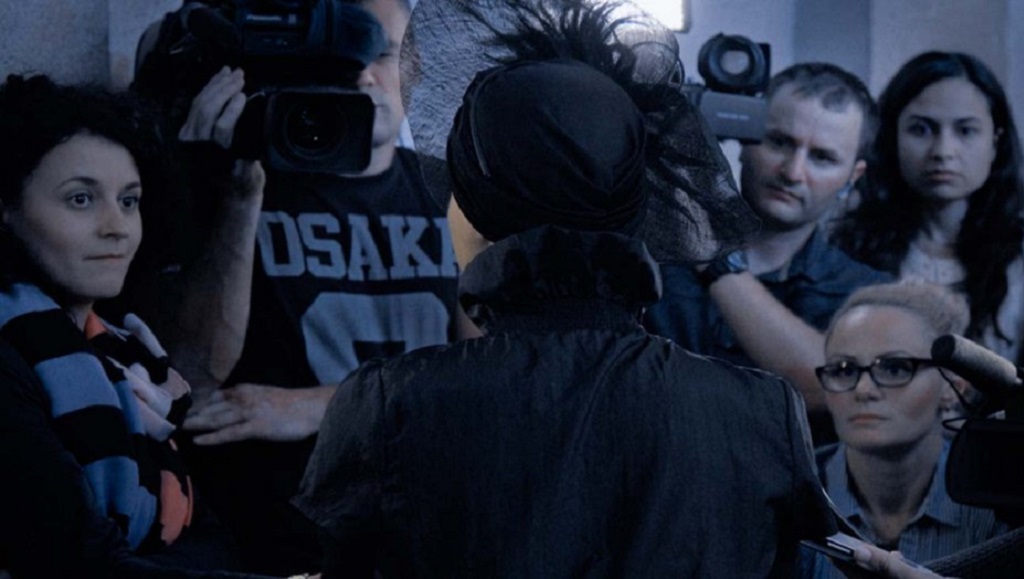Ostensibly a biopic about pioneering mathematician Alan Turing, The Imitation Game’s opening credits play out under a recording of King George VI’s 1939 radio broadcast declaring war on Germany. If you’ll recall, that’s the speech from Tom Hooper’s 2012 Best Picture-winning The King’s Speech, the use of which offers an indication of writer/director Morten Tyldum’s safe, awards-friendly intentions. The Imitation Game is handsome, dignified, simple, and terribly bland.
It starts with Turing (Benedict Cumberbatch) who, recruited by MI6 to help crack the Nazi Enigma code during World War II, wastes no time in alienating his coworkers and superiors with his skittish, occasionally arrogant behavior. Cumberbatch plays him as perpetually shoegazing and twitchy, his inability to mesh with his colleagues a byproduct of his obvious genius. Only Joan Clarke (Keira Knightley) seems to have any interest in understanding his methods and the machine he’s designing that will supposedly revolutionize cryptography. They find common ground in the lack of respect everyone else shows for them, he as a poor team player, she for merely being a woman. All of that character development is articulated through some mighty clumsy dialogue. “Sometimes it is the people no one imagines anything of who do the things that no one can imagine” is a platitude so empty it’s miraculous that it didn’t make its way onto the film’s poster. And the movie proceeds in completely perfunctory fashion, hitting all the expected eccentric-genius-biopic beats without adding any interesting curves to the formula. As his supposedly crazy theories start bearing fruit, Turing slowly earns the grudging admiration of his originally incredulous teammates, and his relationship with Clarke becomes something more than a friendship. It is during this supposedly triumphant latter half, though, that The Imitation Game really collapses, for a couple of key reasons.
Tyldum condescendingly treats the subject of Turing’s homosexuality in the manner of an afterschool special
First, there’s the insultingly oversimplified depiction of Turing’s massively important work. Granted, the process by which the Enigma code was broken took an incredible amount of highly detailed work that would have conceivably taken hours to depict with full accuracy and clarity. In The Imitation Game, though, Tyldum boils all that hard work down to a convenient “eureka” moment in which the solution presents itself after an offhand piece of dialogue. Instead of feeling like a convincing scientific breakthrough, it more goofily plays like something out of a “Star Trek” episode. You couldn’t guess how revolutionary the machine Turing developed is in the history of math and electronics if it weren’t for the film’s final title card oh-so-helpfully clarifying for our benefit, “Today we call them computers.” However that’s perhaps a minor quibble in the face of a much thornier issue: Tyldum’s regressively conservative treatment of Turing’s homosexuality, for which the great mathematician was prosecuted by the British government and chemically castrated in lieu of prison time; eventually, he committed suicide. While the film doesn’t completely elide this critical aspect of Turing’s personal life, it is relegated to the background, floating to the surface only in the most trivial of ways. When Turing marries Clarke in order to secure her job on his team, he asks another colleague something like, “Did you ever go out with girls just because you were supposed to?” Tyldum condescendingly treats this particular aspect of his central subject’s life in the manner of an afterschool special, one in which Turing discreetly deals with uncomfortable feelings “down there.” And after two hours of groundbreaking engineering leading to victory in World War II, Turing’s fate — not to mention that of thousands of other homosexual men during that time — is again relegated to a shallow bit of pre-end-credits text, rendering a crime against humanity a lip-service footnote. Seeing Turing struggle intensely with his forbidden desires or his status in society at large might have made for a more enlightening and electrifying experience than the blandly informative and almost indecently dispassionate prestige picture we sadly get here.








No Comments